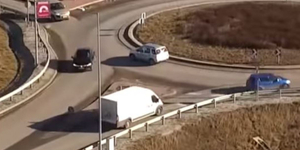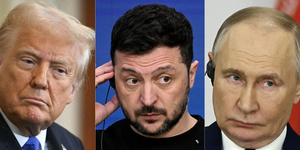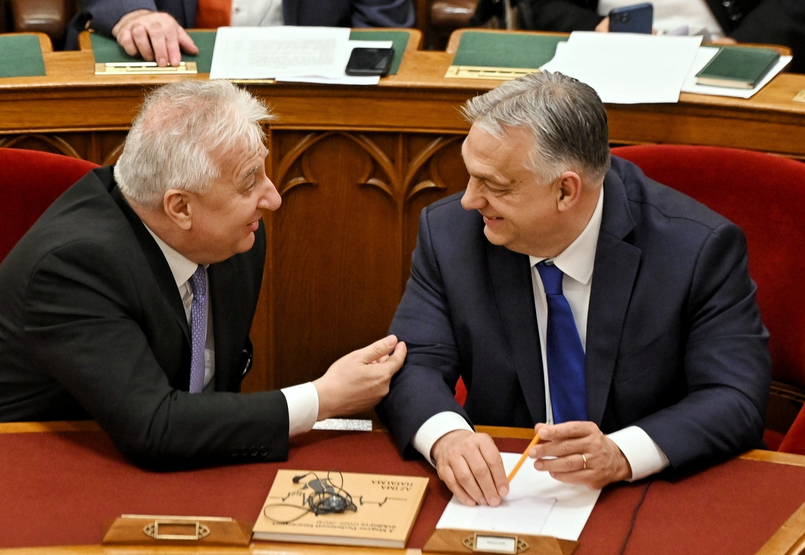The government and the police chief it appointed have scored high marks for cynicism. This is the second occasion on which a document has been withheld and then released to the public within 24 hours following complaints. This time, police chief Peter Gergenyi's response to accusations leveled against him by a parliamentary investigating committee has been hurriedly released to the public. The fact that our distinguished leaders are so happy to create and then abolish state secrets, changing classifications as if it were underwear, threatens to make a mockery of the entire system of state secrets.
All countries have state secrets. Hundreds of civil servants and politicians swear to keep them. Any information can be classified that would seriously damage the security, criminal justice or diplomacy of a country. This is perfectly reasonable in a democracy. It is unlikely many would wish to see lists of spies working abroad or police informants posted on the world wide web. The media, and those who follow politics, only start to get annoyed when it becomes clear that they are being made fools of by people hiding behind the mask of state security. State secrets that can be released after only a couple of hours of classification were obviously never official secrets at all.
They were only official secrets because somebody tried to make them so for their own political ends.
It's all very transparent, and it would be ridiculous if it weren't so tragic. The fact is that just over two months ago, professional football hooligans, accompanied by amateur street rioters and right-wing extremists, occupied a public building. Inadequate numbers of poorly-equipped policeman hastily summoned from the provinces were incapable of defending the Hungarian state TV building.
The highly-decorated senior police officers were unable to send relief to these unfortunates, despite the fact that a circle of hundreds of Budapest police officers were standing just a few hundred metres away.
It was only luck that hours of fire-starting and stone-throwing did not take anybody's life.
The veil of official secrets covering the police internal investigation makes it clear that everybody is pointing to everyone else, desperately trying to avoid carrying the can. It is clear that Peter Gergenyi, who is in ultimate charge of Budapest Police, is not up to the job.
He liked to call himself the Iron Prefect, carefully building up an image for himself of a tough, implacable cop, somebody who would create order at all costs. He would have no truck with slovenliness, corruption or ill-preparedness. Under him, public security and the quality of policing improved enormously. But if he is not up to dealing with an unusual situation, then he has to take the consequences.
But it can't stop with him. The siege of the TV building didn't happen in some godforsaken hamlet in Szabolcs or Zala counties. It happened in the place where the national police chief lives and works. It would be extraordinary if two police commanders who had been working in the same building for decades, had not thought to consult with each other in a crisis like the one we have seen.
However we look at it, what happened in Budapest on 18 September was surreal and hard to believe. Live TV broadcasts showed how a few dozen overexcited rioters spent most of a night beating in policemen, tipping over cars, throwing paving stones and pillaging the TV building - right in the heart of the capital. Duty police officers must have seen this too, but they didn't send reinforcements. This shows a complete failure of communication, or maybe something worse. If it had happened at a rock concert, the head of the private security company would have been sacked.

















